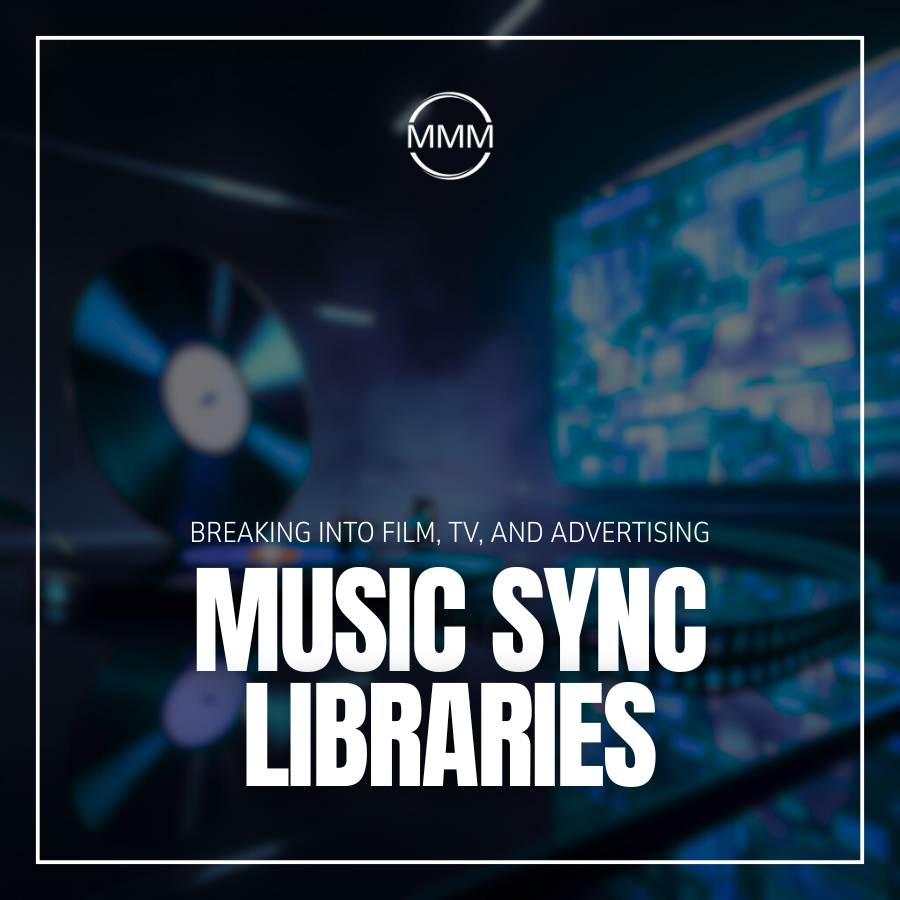Music Sync Libraries: Breaking Into Film, TV, and Advertising
In today’s music industry, sync licensing is one of the most powerful opportunities for independent artists. A single placement in a Netflix show, a TV commercial, or a video game can bring exposure to millions of new listeners — and generate serious revenue. But how do artists land those deals? That’s where agencies and music libraries that specialize in sync step in.

What Are Sync Agencies and Music Libraries?
- Sync Agencies act like talent agents for your music. They pitch your songs directly to music supervisors who are looking for tracks for TV, film, ads, and video games.
- Music Libraries are curated catalogs where supervisors can search and license music on demand. They often work with both signed and independent artists.
Both models exist to connect your music with opportunities in visual media, making them essential partners if you want to grow through sync.
Why Sync Licensing Matters for Artists
Before diving into agencies and libraries, it’s worth noting why sync has become such a big deal:
- Exposure: A song featured in a hit show or viral ad can instantly introduce an artist to new audiences worldwide.
- Revenue: Sync placements often pay upfront licensing fees, plus royalties through performance rights organizations (PROs).
- Career Boost: Many breakout artists today — from indie bands to pop stars — gained traction through sync opportunities.
Top Types of Agencies and Libraries That Specialize in Sync
Here are the main categories of players in the sync space:
1. Boutique Sync Agencies
Smaller, specialized agencies often work closely with indie artists. They build strong relationships with music supervisors and actively pitch songs tailored to specific projects. Examples include Low Profile, Secret Road, and Terrorbird Media.
2. Major Music Libraries
These libraries are massive platforms with thousands of tracks available for licensing. They’re popular with supervisors who need fast, affordable solutions. Examples: APM Music, Universal Production Music, Warner Chappell Production Music.
3. Independent Libraries and Platforms
Great for independent artists who want more flexibility. Platforms like Songtradr, Artlist, and Epidemic Sound allow artists to upload their music for direct licensing opportunities.
4. Specialized Genre Libraries
Some agencies and libraries focus on niches, like trailer music, cinematic scores, or pop tracks for ads. This makes it easier for supervisors to find exactly what they need.
How Agencies and Libraries Support Artists
Working with these sync-focused partners offers:
- Pitching & Networking: Agencies already have relationships with supervisors, so your music lands directly on their desks.
- Catalog Management: Libraries organize, tag, and make your tracks searchable, saving supervisors time.
- Negotiation Support: Agencies help secure fair fees and protect your rights.
- Global Reach: Many libraries have worldwide clients, meaning your music could end up in international projects.
Tips for Artists Considering Sync
If you’re aiming to work with agencies or libraries that specialize in sync, keep these in mind:
- Have clean, high-quality recordings (no unfinished demos).
- Offer instrumental versions of your songs — supervisors often prefer them.
- Register your music with a PRO (like ASCAP, BMI, or PRS) to collect royalties.
- Be professional and responsive when opportunities arise.
Final Thoughts
Agencies and libraries that specialize in sync are gateways to the global entertainment industry. They help artists turn great songs into powerful placements across film, TV, advertising, and gaming. For independent musicians, working with the right sync partners can be a career-changing move — providing both financial rewards and worldwide recognition.

